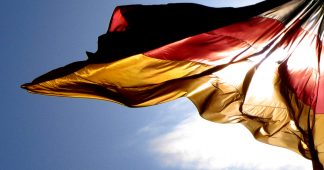By Niklas Novaky
Jul 22, 2020
Most headlines on the EU budget deal will focus on the response to Covid-19. But the new budget will include billions for new EU defence initiatives, writes Niklas Novaky.
Niklas Novaky is a research officer for EU security and defence policy at the Wilfried Martens Centre in Brussels.
On 21 July, after marathon discussions, the European Council reached an agreement on a €1.074 trillion EU budget, the Multiannual Financial Framework (MFF), and a €750 billion recovery fund that will help fix the damage done to Europe’s economies by the coronavirus pandemic. The agreement is historic due to its size, because it’s the EU’s first post-Brexit multiannual budget, and because it allows the Union to borrow jointly from financial markets at an unprecedented scale
The MFF is also noteworthy because, for the first time, it includes money for initiatives related to EU defence cooperation. The agreement gives €7.014bn to the new European Defence Fund (EDF), which will finance joint defence capability development and research projects; €1.5bn to military mobility, which will invest in dual use infrastructure to facilitate the movement of military assets and capabilities within Europe; and €5bn to the new off-budget European Peace Facility (EPF), which will help finance EU operations and support those of its partners.
However, the agreed budgets are significantly lower than what the European Commission initially proposed at the start of the MFF process in 2018. During the negotiations, the proposed size of the EDF shrank by 39%, the EPF’s by 46%, and military mobility’s by 74%. At one point, the European Commission even proposed cutting military mobility entirely from the MFF.
This means that the agreed budgets are not too far away from what the Finnish EU Council Presidency proposed in its December 2019 negotiating box. At the time, the Finnish proposal was widely condemned in Brussels as inadequate and insufficient. European Commission President Ursula von der Leyen, for example, expressed concern at the cuts that Finland proposed in strategic EU policy areas such as security and defence.
However, since December 2019, a lot has happened in the world. The COVID-19 pandemic pushed European countries to shutdown large parts of their economies in March 2020, and they haven’t yet been able to fully reopen them. The cost of the pandemic will be extremely high: according to forecasts by the European Commission, the EU’s economy will to contract by 8.3% in 2020 and grow only by 5.8% in 2021.
Given the dire economic situation, it is understandable that the planned budgets for EU defence initiatives did not move much from the Finnish proposal, despite the efforts of France and Germany. Both Paris and Berlin argued for funding the EU’s defence ambitions at an ambitious level in the run up to the European Council. For Paris in particular, this meant securing a budget for the EDF that would’ve been €10bn or more. In the end, there wasn’t enough appetite for this among other member states.
Yet, the agreement can be seen as a partial victory for EU defence cooperation. The budgets for the EDF, EPF and military mobility could have decreased even further as the member states focus on addressing the immediate socio-economic fallout from the pandemic. The agreement shows that the member states are nevertheless willing to invest in future oriented programmes designed to enhance the Union’s safety and security. This is positive.











